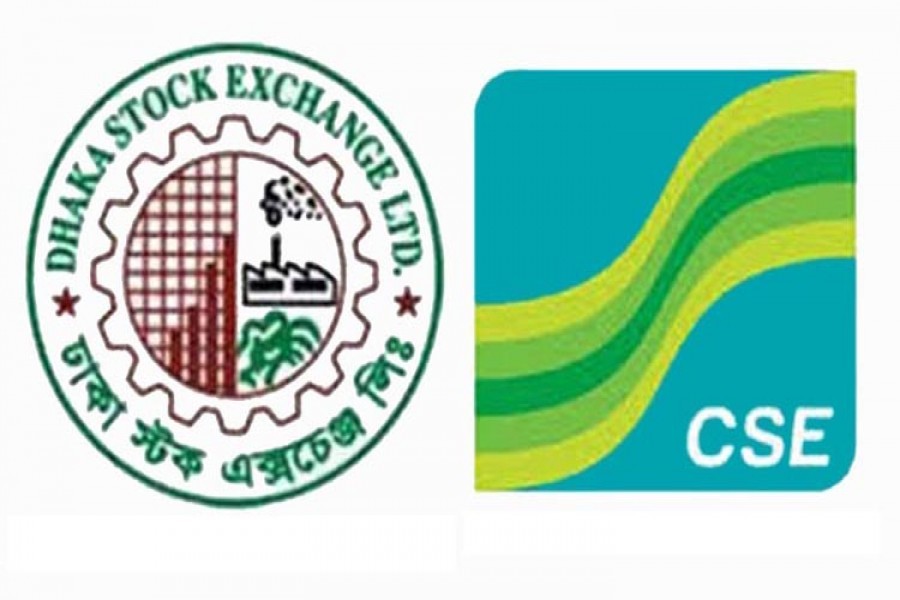Stock exchanges all over the world are unpredictable places. Their fate fluctuates unendingly. So are their indices. The fluctuations, however, are always dependent on a number of factors, economic or otherwise.
The stock market in Bangladesh is also unpredictable. But the degree of its unpredictability is apparently higher. At times, its reaction to important economic or political developments turns out to be different from what is normally witnessed in other countries. To many market watchers, the Bangladesh market has remained more of a puzzle.
A case in point is the persistent decline of key indices of the Dhaka Stock Exchange (DSE) for the past few weeks, that too after signing of the much-talked-about deal between the Bangladeshi bourse and the consortium of the Shenzhen Stock Exchange and the Shanghai Stock Exchange.
The deal enabled the consortium to become a strategic partner of DSE through the purchase of a little over 25 per cent the latter's stakes.
The reported rivalry between an Indian stock exchange-led consortium and the Chinese one added an extra flavour to the process involved in the selection of a strategic partner for the DSE.
It was widely expected that there would be a positive impact of the strategic partnership deal on the market. But the opposite has happened. The market has been on a declining path for nearly three weeks. The daily turnover has also been low.
The market is not supposed to behave this way even without the entry of the Chinese consortium as the strategic partner of DSE. There are other reasons for the market to go up.
The economy, according to official projections, is set to grow at a record pace this fiscal year. The projections of the multilateral lenders, though lower than the official one, do highlight the robustness of the country's economic growth.
The rosy picture of the economy, it seems, does not have any positive impact on the stock market. This sort of bahaviour on the part of the market is quite different from that of other markets, both in developed and developing countries.
It seems a sort of uncertainty exists over the upcoming general elections. But, political developments, as recent experiences suggest, do not have that much of bearing on the stock market activities in Bangladesh. There were instances of market indices going up during the periods of intense political troubles.
The truth is that the Bangladesh stock market has its own dynamics, completely different from that of other markets.
The reasons behind the lacklustre performance of the country's stock market are many. The shortage of quality stocks is often cited as a major reason. The shortage of quality stocks is a problem, no doubt. But the fact remains that the market has been witnessing the entry of new issues almost regularly and good number of those have potential.
The harsh reality is that, at the moment, there is a serious dearth of investors, both individual and institutional, in the market.
There is also dearth of quality stocks. The stocks that offer handsome dividends are limited in their numbers and their prices are unreasonably high. The return does not justify the current value of these quality stocks.
Even a modest return that the investors used to get from the largest segment of the stocks--- the banks---is now almost gone. Most banks have declared dividends at very unattractive rates.
Thus, the investment options for the general investors have narrowed further down. In such a state of the market, one cannot expect the presence of investors in notable numbers.
The participation of general investors in day-to-day transactions has not been up to the expected level since the collapse of the market in December, 2010. There were occasional, but short-lived, rush of general investors. But the market did not get the buoyancy at the desired level.
The state of the mutual funds (MFs) amply indicates the state of the country's stock market. A good number of MFs is being traded at prices well below their face value.
The participation of general investors is necessary to make a stock market vibrant. But there is always limit to such participation, given their capacity, in terms of capital, to invest.
In Bangladesh situation, what is important is the participation of institutional investors. It is none but the banks and other financial institutions hold the key to boosting the stock market. The 2010 bubble was created largely due to the large-scale participation by a section of over-zealous banks.
At the moment, banks are not in a position to make yet another foray into the market. Liquidity shortage and regulatory restrictions are holding them back. Had there been yet another opportunity to make quick bucks as in 2010, what they would have done, is anybody's guess


